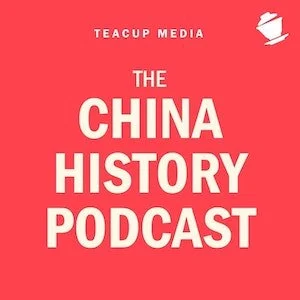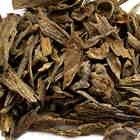Ep. 278 | The Hakka Kongsis of Borneo (Part 1)
The history of the Overseas Chinese in Southeast Asia is rich with all kinds of lesser-known or forgotten tales, like this one. A kongsi (公司) today means a company. But when Chinese immigrants from Eastern Guangdong and Southern Fujian were heading in the direction of West Borneo to engage in gold mining, kongsis were established as associations where its members were organized and led.
The Chinese migrants in West Borneo faced a constant barrage of challenges and these Kongsis, mostly Hakka, but also from the other main Chinese linguistic groups, were a mechanism with very democratic looking appearances, that took care of the needs of the group. This is Part 1 of an overview of their history.
Listen On Your Favorite Podcast Player
Terms in Episode
| Pinyin/Term | Chinese | English/Meaning |
|---|---|---|
| Fújiàn | 福建 | Coastal province in southern China where the Hokkien (Hoklo) and Hokchiu people originate from |
| Guǎngdōng | 广东 | Coastal province in southern China |
| Gōngsī | 公司 | A clan association or secret society. Modern usage uses the term gongsi for a company |
| Khoo Kongsi | 邱公司 | A clan association of the Leong San Tong 龙山堂 (Dragon Mountain Hall) clan, whose forefathers came from Xin'an Village, Haicang District, Xiamen Municipal in Fujian. |
| Ngee Ann Kongsi | 義安公司 | A kongsi founded in 1845 by Seah Eu Chin to look after the religious and humanitarian needs of Teochew immigrants in Singapore |
| Ghee Hin Kongsi | 义兴公司 | Originally a secret society in Singapore and Malaya, formed in 1820. Ghee Hin literally means "the rise of righteousness" in Chinese. The Ghee Hin often fought against the Hakka-dominated Hai San secret society. |
| Qiánlóng | 乾隆帝 | Qing emperor who reigned 1735-1796 |
| Guāngxù | 光绪帝 | Qing emperor who reigned 1875-1908 |
| Hakka | 客家 | Han Chinese subgroup, originally from Northern China but whose ancestral homes today are chiefly in the Hakka-speaking provincial areas of Guangdong, Fujian, Jiangxi, Guangxi, Sichuan, Hunan, Zhejiang, Hainan and Guizhou |
| Hokkien | 福建 | People from southern Fujian (as well as their culture and language) |
| Teochew | 潮州 | People from the Chaoshan region of Guangdong (as well as their culture and language) |
| Dayak | 达雅族 | The Dayak people who were indigenous to the island of Borneo |
| Quánzhōu | 泉州 | Port city in Fujian |
| 渤泥 | Bóní | Former name used for Borneo |
| Póluózhōu | 婆罗洲 | Borneo |
| Yuán Dynasty | 元朝 | Dynasty founded by Kublai Khan in 1271 that lasted till 1368 |
| Yǒnglè | 永乐帝 | Ming Dynasty larger than life emperor who reigned 1402-1424 and who called for the voyages of Admiral Zheng He |
| Zhèng Hé | 郑和 | Ming Dyansty statesman, official and admiral who lived 1371-1433. He is renowned for the many voyages he took to faraway lands |
| Sambas | 三发 | City in the most northern part of West Kalimantan. Sit of the regency seat of Sambas Regency as well as the Sultanate of Sambas |
| Pontianak | 坤甸 | Trading port city at the mouth of the Kapuas River. Present-day capital of West Kalimantan |
| Mempawa | 携带 | Coastal city between Pontianak and Singkawang |
| Montrado | 打勞鹿 | Inland city east of Singkawang that was the site of many Kongsis as well as the Heshun Zongting |
| Mandor | 领班 | Inland city east of Mempawa that was the site of Hakka Lanfang Kongsi |
| Jiāyīngzhōu | 嘉应州 | Former name of the land today known as Meizhou, the center of Hakka Culture |
| Méizhōu | 梅州 | City and county in eastern Guangdong province |
| Cháozhōu | 潮州 | One of the three cities that make up the Chaoshan region, ancestral home of the Teochew people |
| Shàntóu | 汕头 | One of the main port city in the Chaoshan region, ancestral home of the Teochew people |
| Jiēyáng | 揭阳 | One of the three cities that make up the Chaoshan region, ancestral home of the Teochew people |
| Dì Gōng | 地公 | The Earth God, also called Dà Bó Gōng 大伯公 by the Hakka People |
| Sān Shān Guó Wáng | 三山国王 | The Lords of the Three Mountains, a triad of Taoist deities worshipped in Southern China among the Teochews and Hakkas |
| Tiān Hòu | 天后 | The Chinese Goddess of the Sea, also referred to as Māzǔ 妈祖 |
| Guān Gōng | 关公 | The God Guan Yu 关羽 who was the embodiment of trust, loyalty and bravery |
| Guānyīn | 观音 | The Chinese Goddess of Mercy |
| Guānyīn Tíng | 观音亭 | A Guanyin Temple, from which we get the Indonesian word: Klenteng |
| Jīn Shān | 金山 | Gold Mountain |
| Huì | 会 | A society, organization, association. In this case it was a smaller version of the "Kongsi" |
| Hoklo | 福佬 | Another term for a Fujianese, used interchangably with Hokkien |
| Lánfāng Kongsi | 兰芳公司 | The Kongsi that was setup in Mandor, West Kalimantan by Luo Fangbo that lasted 1776-1884 |
| Héshùn Zǒngtīng | 和顺总厅 | The other main Kongsi that was setup in Mantrado, West Kalimantan that lasted 1777-1854 |
| Luō Fāngbó | 罗芳伯 | Founder of the Lanfang Kongsi (or Republic) |
| Hóng Xiùquán | 洪秀全 | Hakka rebel leader who reigned 1851-1864 as the Taiping Heavenly King and the principle figure of the Taiping Rebellion |
| Nányáng | 南阳 | The South Seas, another term for Southeast Asia |
| Liáng Qǐchāo | 梁启超 | 1873-1929, political activist, journalist, and intellectual who played a role in the Reforms during the late Qing and into the early Republic of China |
| Zhōngguó Zhímín Bādà Wěirén Zhuàn | 中国殖民八大伟人传 | “Biographies of China’s Eight Great Colonial Heroes” |
| Bànshānkè | 半山客 | Term for half Hokkien - Half Hakka people |

















his all took place in the final moments of the Warlord Era, right after the Central Plains War. This act perpetrated by warlord Sun Dianying 孙殿英 epitomized the venality of these men.